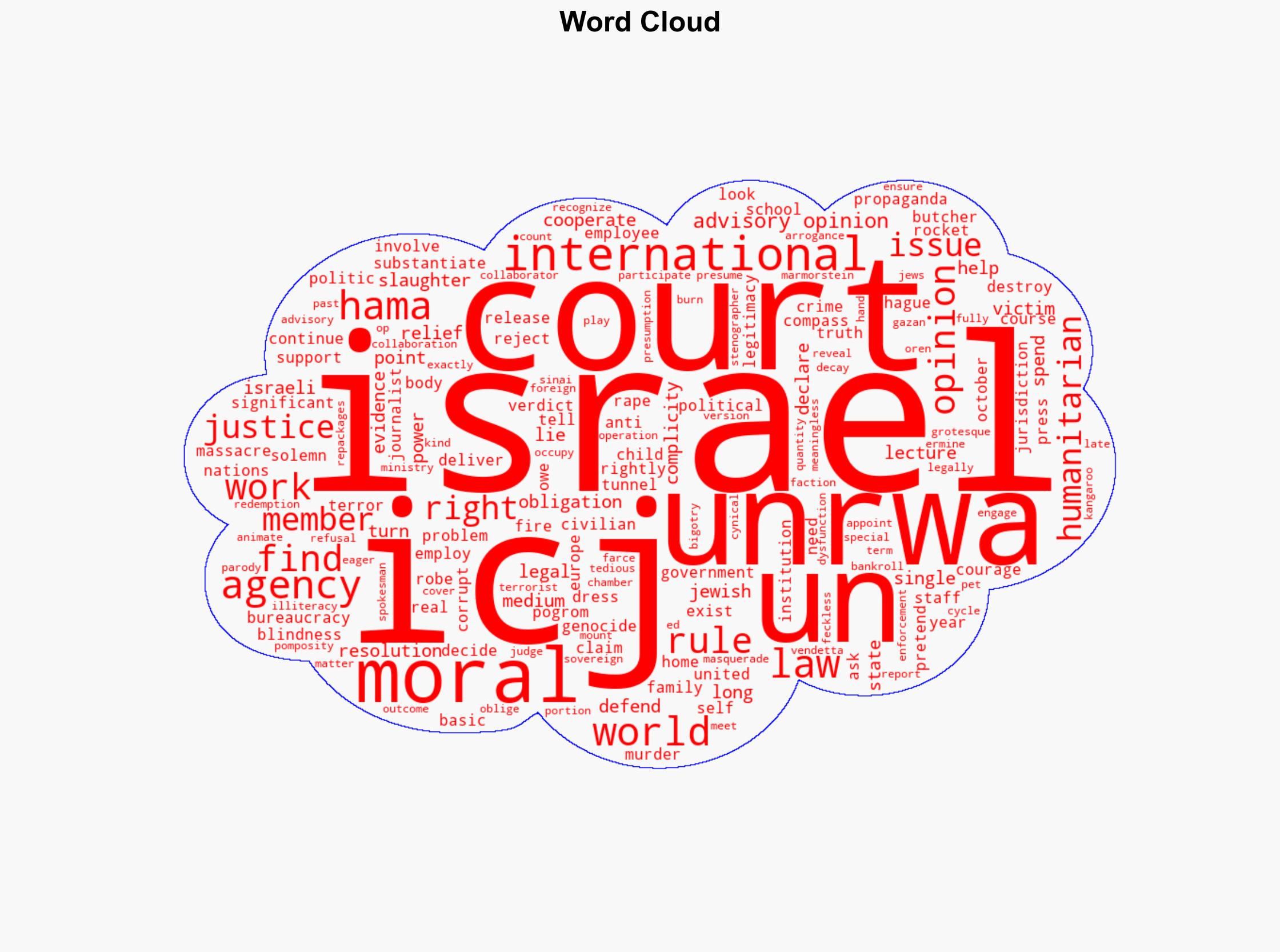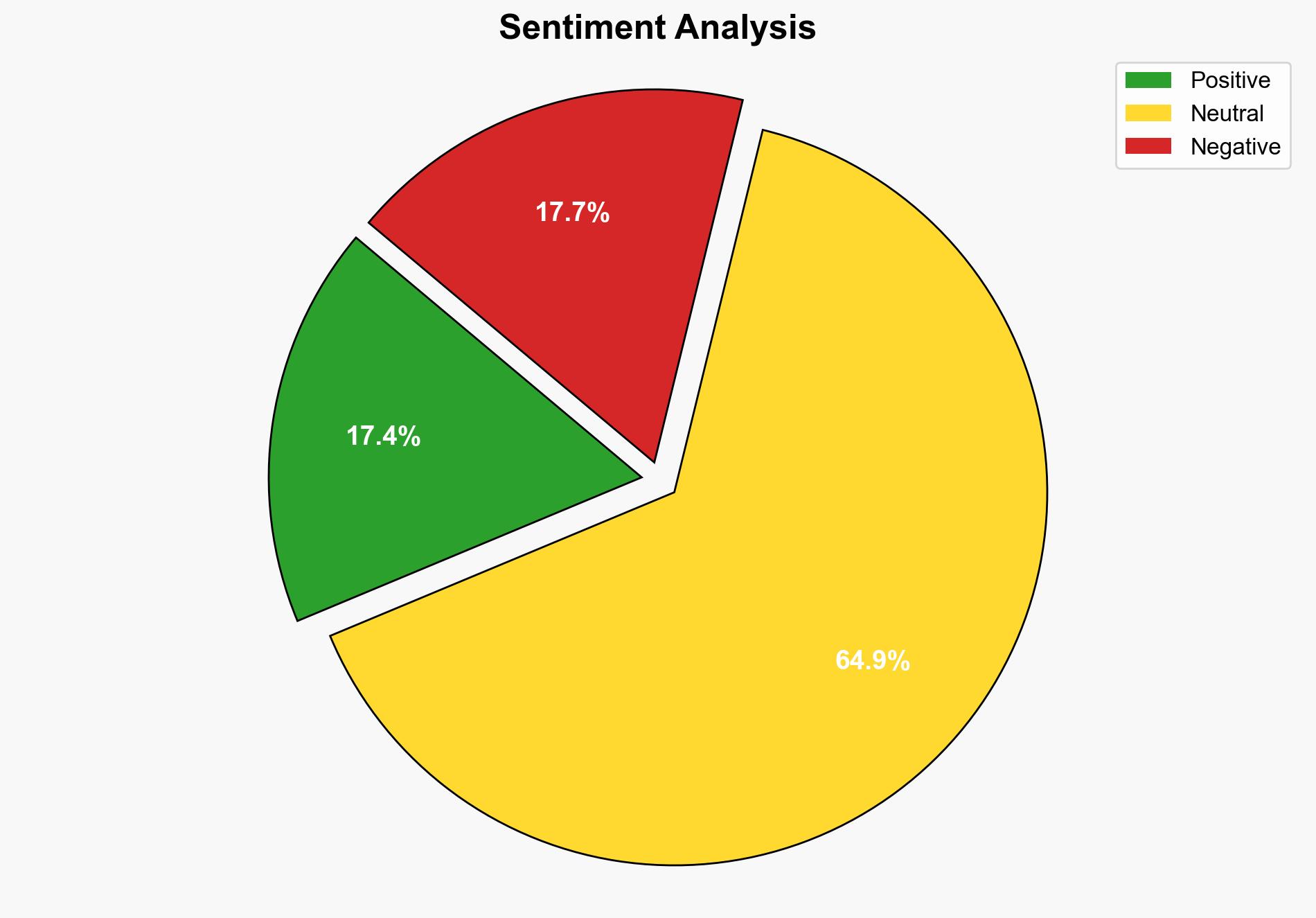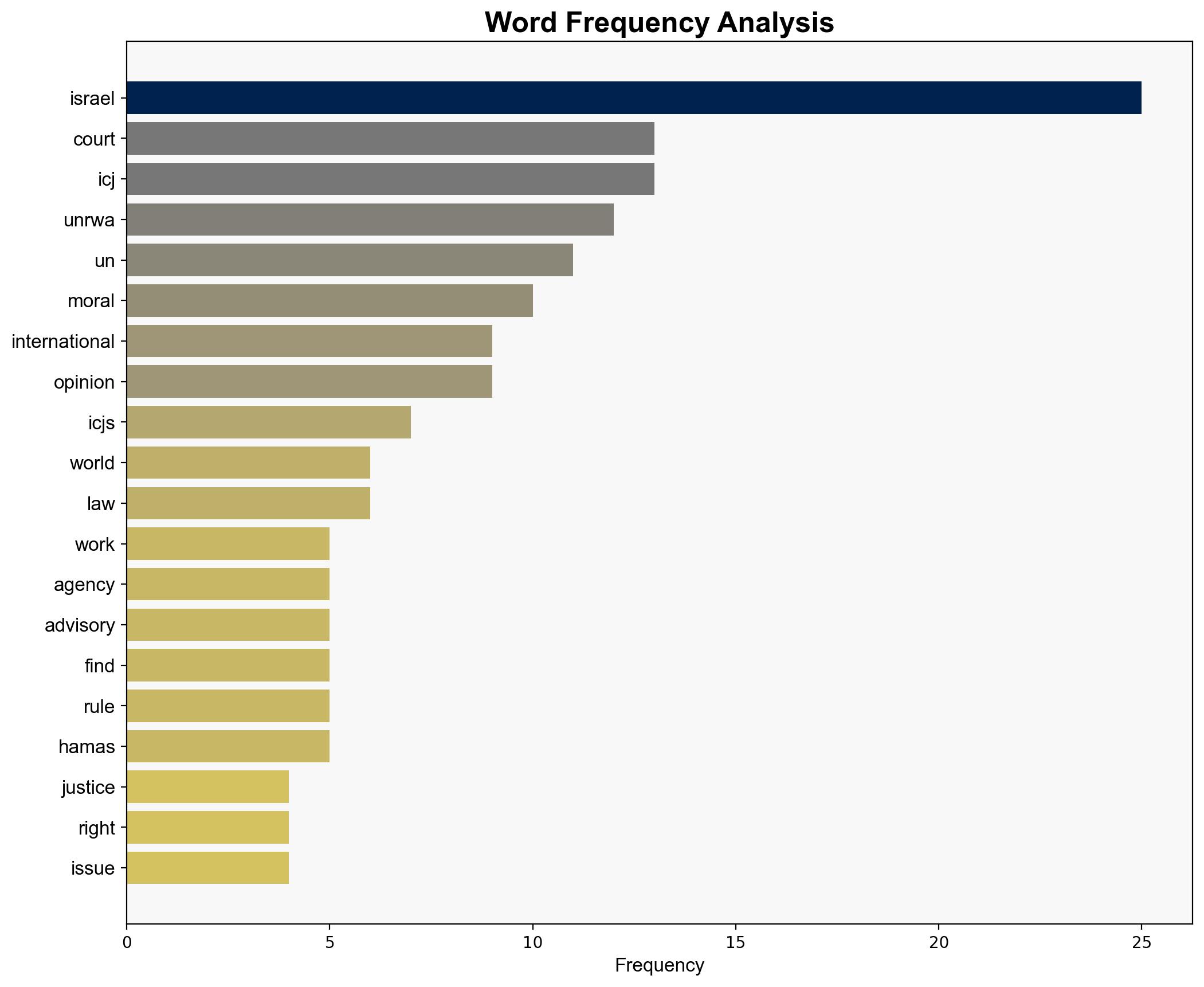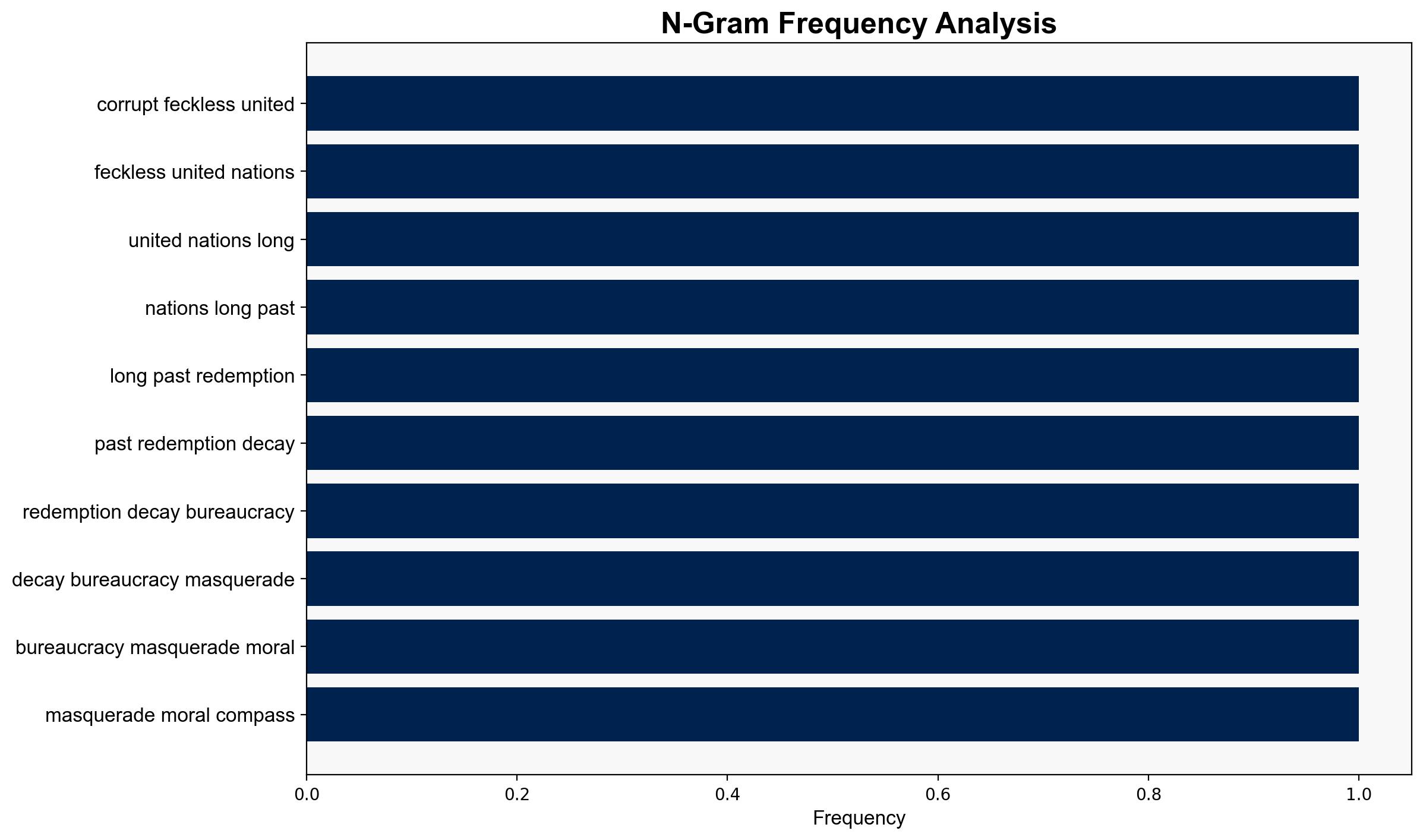The Hague has lost its mind and its morals – Israelnationalnews.com
Published on: 2025-10-23
Intelligence Report: The Hague has lost its mind and its morals – Israelnationalnews.com
1. BLUF (Bottom Line Up Front)
The intelligence suggests a significant divergence in perspectives regarding the International Court of Justice’s (ICJ) advisory opinion on Israel’s obligations towards the United Nations Relief and Works Agency (UNRWA). The most supported hypothesis is that the ICJ’s decision is perceived as politically motivated and biased against Israel. Confidence in this hypothesis is moderate due to the polarized nature of the source. Recommended action includes diplomatic engagement to address perceived biases and reinforce Israel’s position on international platforms.
2. Competing Hypotheses
1. **Hypothesis A**: The ICJ’s advisory opinion is a politically motivated decision aimed at undermining Israel’s sovereignty and supporting anti-Israel sentiments.
– **Supporting Evidence**: The source describes the ICJ’s decision as a “grotesque parody of justice” and highlights perceived biases in favor of UNRWA, which is accused of complicity with Hamas.
2. **Hypothesis B**: The ICJ’s advisory opinion is a legitimate legal interpretation of international obligations, aiming to ensure humanitarian support in Gaza.
– **Supporting Evidence**: The ICJ’s role in providing advisory opinions is to interpret international law, and the decision may reflect broader international concerns about humanitarian conditions in Gaza.
Using the Analysis of Competing Hypotheses (ACH) 2.0, Hypothesis A is better supported by the source, which strongly criticizes the ICJ’s motivations and actions.
3. Key Assumptions and Red Flags
– **Assumptions**: Hypothesis A assumes inherent bias within the ICJ and UNRWA’s complicity with Hamas. Hypothesis B assumes the ICJ’s decision is purely legal and not influenced by political considerations.
– **Red Flags**: The source’s strong language and one-sided perspective may indicate bias. Lack of counterarguments or alternative views suggests potential cognitive bias.
– **Blind Spots**: The source does not provide detailed evidence of UNRWA’s alleged complicity or the ICJ’s motivations, which could undermine the credibility of Hypothesis A.
4. Implications and Strategic Risks
– **Geopolitical**: If the ICJ’s decision is perceived as biased, it could exacerbate tensions between Israel and international bodies, potentially leading to diplomatic fallout.
– **Psychological**: The narrative of bias may fuel domestic and international skepticism towards international legal institutions, affecting their legitimacy.
– **Escalation Scenarios**: Increased diplomatic isolation of Israel or retaliatory measures against international bodies could occur if perceptions of bias are not addressed.
5. Recommendations and Outlook
- Engage in diplomatic dialogue with international bodies to address perceived biases and reinforce Israel’s legal and humanitarian positions.
- Enhance public diplomacy efforts to present Israel’s perspective on international platforms.
- Scenario Projections:
– **Best Case**: Constructive dialogue leads to a balanced understanding and improved relations with international bodies.
– **Worst Case**: Diplomatic isolation and increased tensions with international institutions.
– **Most Likely**: Continued polarization with periodic diplomatic engagements to manage tensions.
6. Key Individuals and Entities
– Oren Marmorstein
– UNRWA
– International Court of Justice (ICJ)
– Hamas
7. Thematic Tags
national security threats, geopolitical tensions, international law, diplomatic relations





